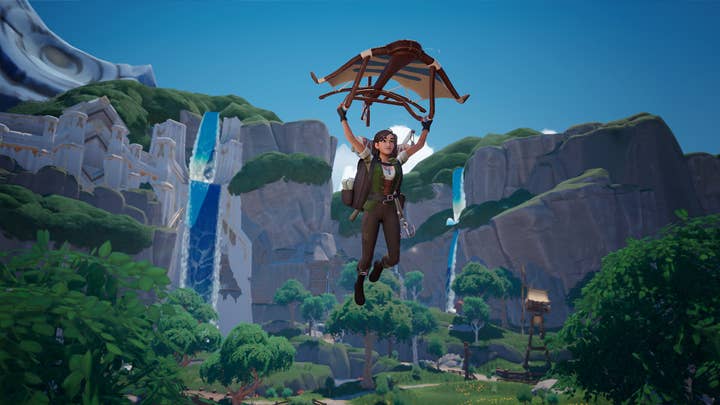Palia reaches over 3m players in six months thanks to "invaluable" Switch partnership
Singularity 6's Yu Sian Tan provides insight into how the studio reached this goal, and the biggest lessons it learned from Palia's launch
Singularity 6's cosy MMO Palia has reached over 3 million players in six months ahead of its launch on Steam on March 25.
The studio's debut title — a fantasy mix of life simulation and MMORPG — launched last August with a PC open beta via its own website and launcher, followed by a release on the Epic Games Store in October. The game then launched on Nintendo Switch in December.
As for how Palia achieved this feat, Singularity 6 director of business strategy Yu Sian Tan tells GamesIndustry.biz it was a combination of captivating players and the game's release on Nintendo Switch.
"We believe that we struck a chord with players when we wanted to expand the community sim experience by making it more social, creating an environment that encourages players to be kind to one another and having an overarching narrative that players can dive into," she says, adding that Nintendo's involvement and supporting in development and marketing aided an increase in player numbers.
"[Their support] is invaluable to us as a new game studio," Tan adds. "After our launch on the Nintendo Switch, our partnership with Nintendo has only grown stronger."
Tan says Palia's launch on Nintendo provided a "big boost" to the title compared to the PC open beta due to the "flexibility" of the portable console.
"It also meant we were launching on a new platform and now supported cross-platform play so things definitely got a lot more interesting for the team," she says.
Despite this boost in player numbers, Tan notes that maintaining player engagement is one of the biggest challenges of overseeing the success of a free-to-play MMO.
"The free-to-play approach can be challenging because it involves a bit of a balancing act between offering engaging gameplay for free, but also introducing effective monetisation strategies that do not alienate players or cause unnecessary pressure that would run antithetical to the cosy community sim gameplay we are trying to encourage in Palia," she explains.
Tan highlights that the main obstacle with free-to-play is the ability to engage players over a long period of time when they haven't paid an upfront cost for the game, as well as keeping the game fresh as a live service product.
"I'd love to be able to say it's easy to predict what our players love to play and how they would engage with our content, but every time we release something new to our players, we constantly learn and evolve our understanding of our playerbase," she says.
"Every time we release something new to our players, we constantly learn and evolve our understanding of our playerbase"
"It's a mix of offering up content with our own unique spin on it that appeals to the player archetypes we expect to be attracted to Palia, but also throwing in new experiences to help players discover something that they might not have expected to like."
In terms of the live service aspect of the game, Tan describes adapting the title to this model as a "learning curve" for the studio, and that its live operations team has been instrumental in understanding concerns raised by its development team and ensuring their needs are met.
"We have definitely been working on improving our platform testing over time to understand what we need to test and where to test it to ensure we minimise our risk and maximise confidence," she notes.
"We have also been working on unifying the gameplay experience between platforms where it makes sense, without sacrificing the player experience. This has been a conscious effort for us as there are trade-offs we have to make, but this is key to ensure we can sustainably release content on multiple platforms in the future."
Among the lessons learned during development, Tan highlights that the game starting as an open beta on PC enabled the studio to comfortably launch the game on Switch, and helped lay the groundwork to bring the game to a bigger audience.
"There have been so many lessons we have learned along the way – from building our own launcher/patcher on PC from scratch [to creating] robust monitoring systems and a scalable infrastructure that could handle the ebbs and flows in our playerbase," she says.
As for advice she has for developers working on similar free-to-play and live service products, Tan says it all comes down to the strength of the development team itself.
"The most important factor is to have a strong development team who trusts each other to band together and support each other throughout the ups and downs," she highlights. "Accept that you cannot plan for everything, so it's important to have established processes for how you deal with issues when they come up and how you take the lessons and apply them going forward."
Sign up for the GI Daily here to get the biggest news straight to your inbox

